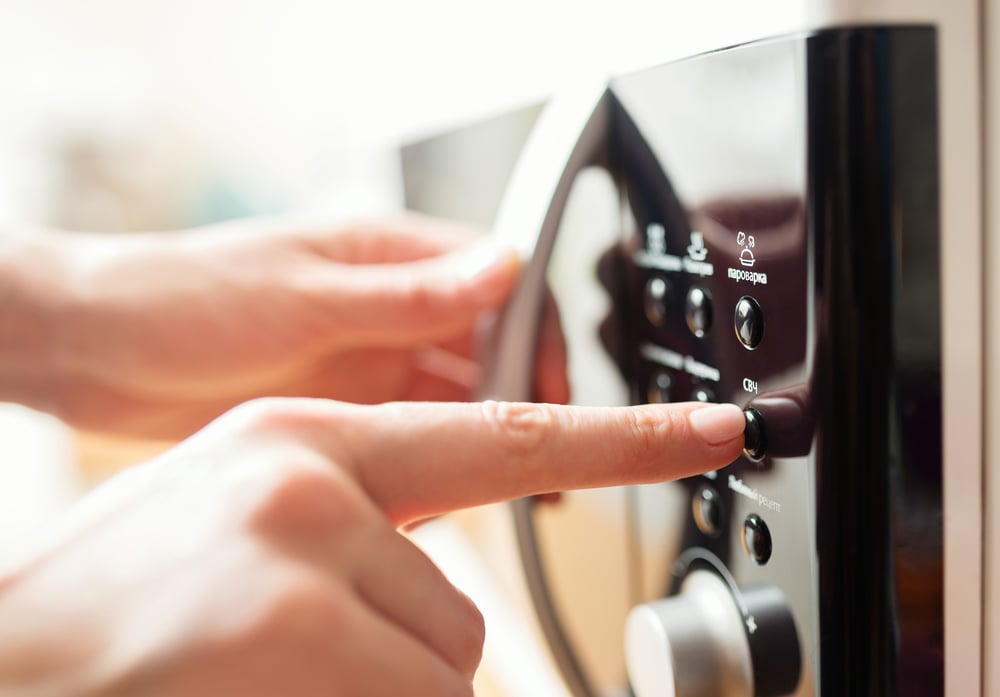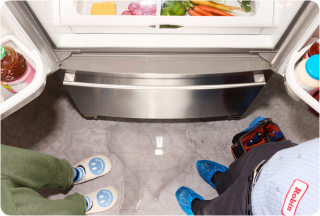17 Items You Should Never Refrigerate

Home refrigerators are our ultimate home storage item. There are, however, some items that you should never put in your refrigerator.


Home refrigerators are our ultimate home storage item. There are, however, some items that you should never put in your refrigerator.
If you fear you’ve been a culprit of over-refrigerating, check out our list of 17 (food and non-food) items that you should never store in your refrigerator. You'll end up with tastier and healthier food and products that work better.
It seems like this would be an effective way to help your polish last longer, but it doesn't. The cooler temperatures in the refrigerator cause the polish to thicken. Your polish will last the longest if it's stored at room temperature and away from direct sunlight.
We're not sure where this idea originated, but storing your batteries in the refrigerator will actually reduce the battery's performance. Also, condensation that occurs in the refrigerator can cause the contacts to corrode and damage the seal. The best place to store your batteries is in a drawer at room temperature (68 to 78 degrees Fahrenheit).
It turns out that hot sauce can be stored in your pantry for up to three years. Who knew?
Condensation from the refrigerator or freezer can affect the flavor of ground and whole-bean coffee. Instead, store your coffee in an airtight container in your pantry.
Maybe you've been putting potatoes in the refrigerator because they tend to sprout if you don't use them quickly enough. Moisture in the refrigerator actually changes the flavor and causes the starches to break down. Store them in a paper bag in your pantry. Don't place them in plastic bags because plastic is prone to trap moisture and speed up decay.
Keep them on the kitchen counter. Storing them in the refrigerator changes the texture, causing them to become mushy and mealy.
Believe it or not, Mom was storing these condiments all wrong. They’ll keep perfectly fine in the pantry. Think about this: How many hamburger joints have you been to where they have the ketchup or mustard sitting on the table?
Thinking about coverage?
Security for your home. Protection for your budget.
Storing onions in the refrigerator will cause them to get moldy and mushy. Onions need air circulating around them. Place your onions in a mesh bag and store in the pantry or another dry place. However, keep them away from your potatoes because potatoes emit moisture and gasses that cause onions to rot.
Pickles have plenty of preservatives (salt, vinegar) to keep them crisp and fresh in the pantry. Makes sense.
Did you know honey never spoils? But if you put it in the refrigerator, it will crystallize and become too gooey to pour. Keep it in the pantry.
This summer food is chock-full of antioxidants such as lycopene and beta-carotene, which have many health benefits. When placed in the refrigerator, watermelon begins losing its nutritional value. A watermelon will last up to three weeks after it's been harvested. Go ahead and keep it on your kitchen counter.
Surprise! There are enough preservatives in jam to safely store it on the counter, in the pantry, or on the table (even after it's been opened).
Nobody likes to eat stale bread, but that's exactly what you'll get when you store it in the fridge. It turns out that starches in bread will recrystallize when it's kept in a cooler environment. Store-bought bread will last about a week on your kitchen counter. It is OK to freeze bread in an airtight container until you’re ready to use it.
Moisture, light, and temperature changes are not your perfume's friend. All of these things can break down the essential oils and synthetic fragrances in your favorite scent. Instead, store them in a dark, dry place such as your closet.
Don't put it in the refrigerator or it will sprout and become moldy. Yuck! Garlic loves to be stored in a dark, dry place with good air circulation. A mesh bag or bowl in your cupboard is the perfect spot.
Storing oils, especially olive and coconut oils, in the refrigerator will cause them to solidify like butter. Store in a dry place at room temperature.
Fresh herbs such as basil, parsley, and cilantro are delicious in recipes, but putting them in the refrigerator can cause them to absorb odors, wilt, and blacken. Instead, trim the ends of the stems and place them in a glass with an inch or so of water. Added bonus: It looks pretty and makes your kitchen smell great!
Learn more about warranty coverage that keeps your refrigerator running.

AHS assumes no responsibility, and specifically disclaims all liability, for your use of any and all information contained herein.
Have a plan for your home when things don't go according to plan
Shop Home Warranties